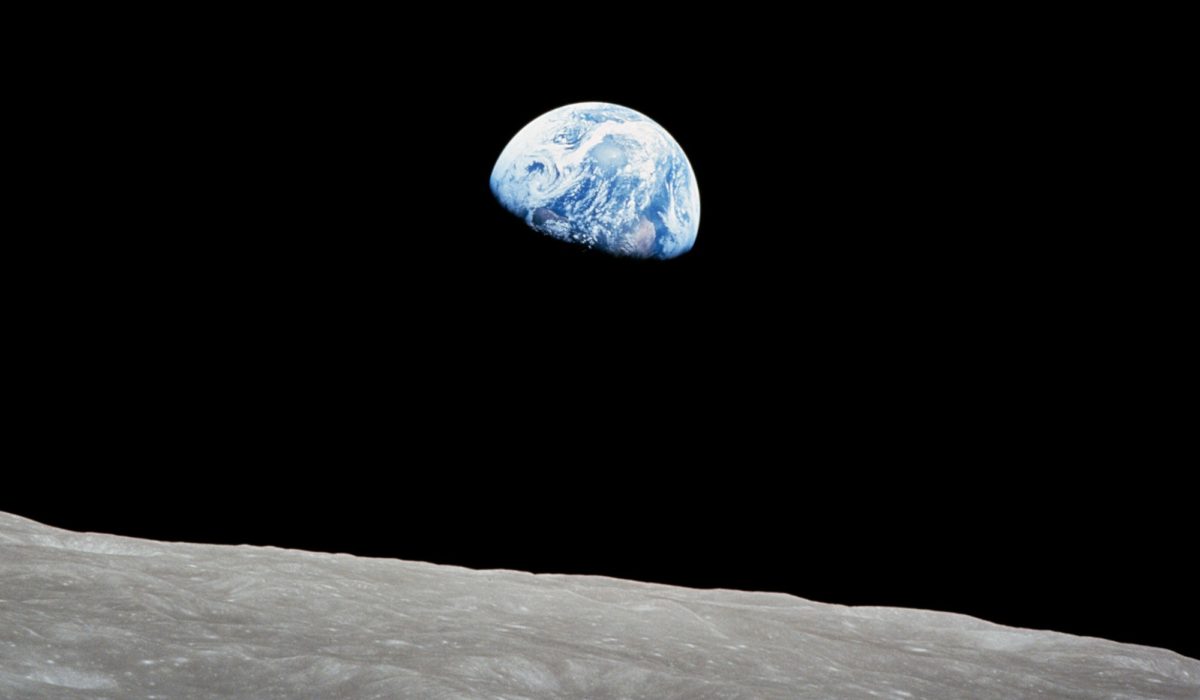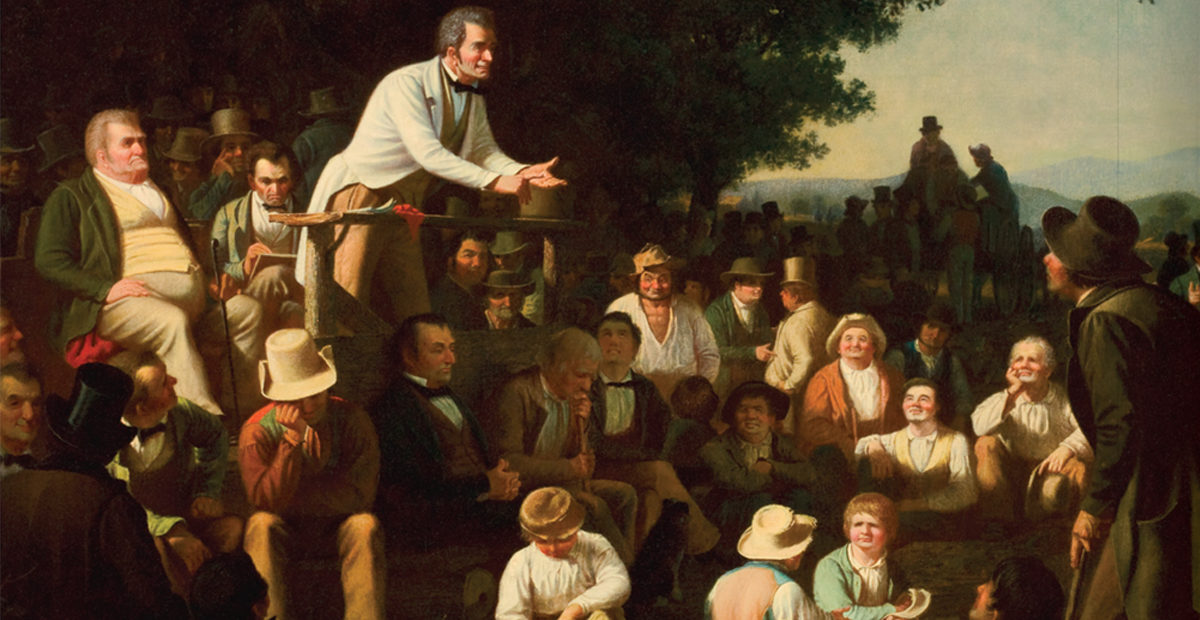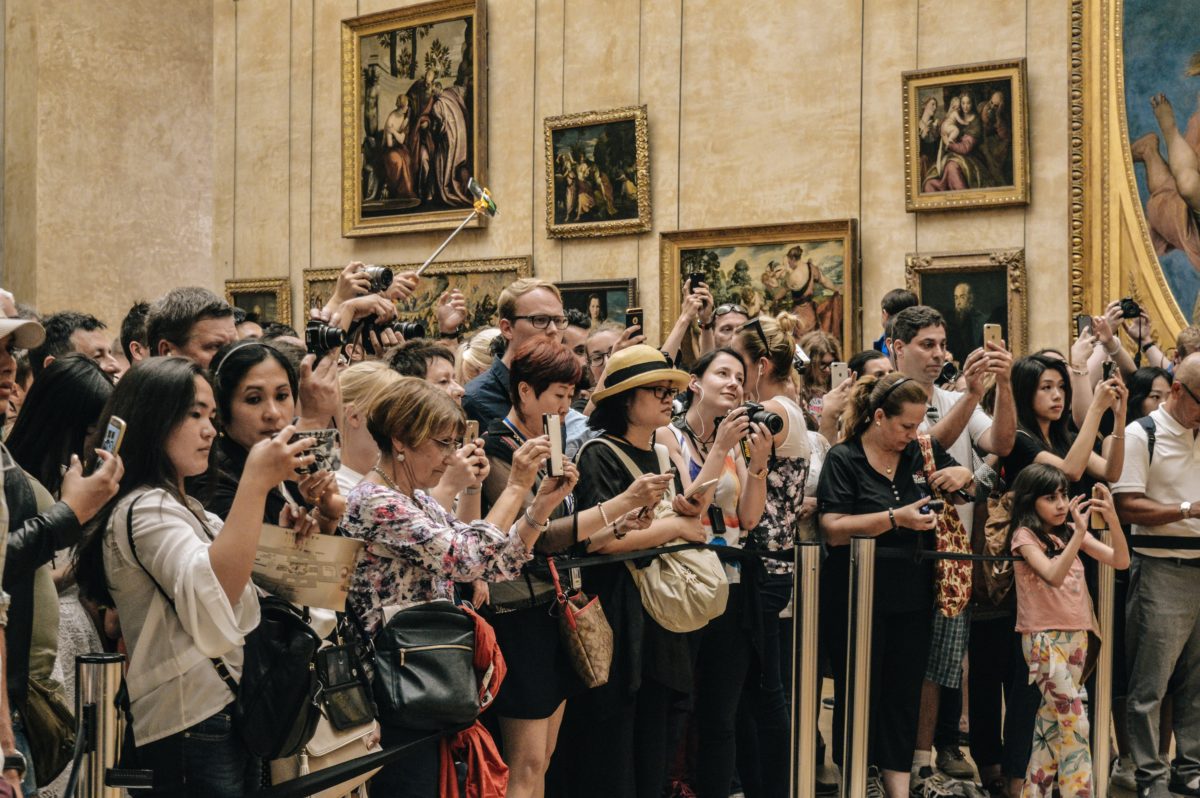Today marks the 50th anniversary of the launch of Apollo 8, the first manned mission to the moon. The historic flight set the stage for a lunar landing less than a year later. It was also the first time human eyes viewed Earth directly as a complete sphere or saw the far side of the moon.
But what many people most remember about astronauts Frank Borman, Jim Lovell, and Bill Anders is what they did that Christmas Eve of 1968. Emerging from the moon’s far side during their fourth orbit, they were mesmerized by their vision of Earth, a delicate, gleaming swirl of blue and white, contrasting with the barren lunar horizon — the famous Earthrise picture.
To mark the event, the crew decided, after much deliberation, to read the first ten verses from the book of Genesis, starting with the familiar “In the beginning, God created the heavens and the earth.” The reading, and the reverent silence that followed, went out over a live telecast to an estimated 1 billion viewers, then the largest audience in television history. It was a noble and poetic moment, one that brought people together after a year of political division and strife not unlike 2018.
In his book about Apollo 8, Robert Zimmerman notes that the astronauts had chosen the words of Genesis not as a parochial religious expression but rather “to include the feelings and beliefs of as many people as possible.” Indeed, most Earth residents who look at the wonders of nature or the awe-inspiring Earthriseimage instinctively perceive the majesty of a grand design.
Of course, many scientists and others dismiss such perceptions as mere sentiment. Yet scientific evidence has increasingly confirmed what the astronauts, and many who heard them, intuitively sensed on seeing the image of Earth from space.
Astronomers now know that Earth is a rare, life-friendly “oasis in the big vastness of space,” as Borman later reflected. In the past few decades they have discovered that life on our planet depends on many improbable “rare-earth” factors. Earth must orbit the sun at just the right distance, with just the right axial tilt, and with just the right-shaped orbit and right planetary neighbors. Life depends on Earth having a moon of the right size at the right distance. The solar system as a whole must also reside in a narrow life-friendly band of space within our galaxy, the “galactic habitable zone.”
We’ve also come to appreciate that we inhabit a privileged platform for scientific discovery. Earth’s crust is endowed with the abundant mineral and energy resources required for advanced technology, including that necessary for sending astronauts to the moon. Our clear atmosphere and location far from the center of a large galaxy allow us to learn about the universe near and far.
At a deeper level, physicists now know that the universe itself exhibits extreme fine-tuning. Even slight changes to the relative masses of fundamental particles or to the strengths of fundamental forces, or to the force driving the accelerating expansion of the universe or to its initial arrangement of mass and energy, would have rendered the universe incapable of sustaining life. In the 1960s, physicists had just begun to discover examples of such fine-tuning. Now they know of many more. This suggests “the common sense interpretation,” as Cambridge University astrophysicist Fred Hoyle put it, “that a super intellect has monkeyed with physics” to make life possible.
Read More ›



